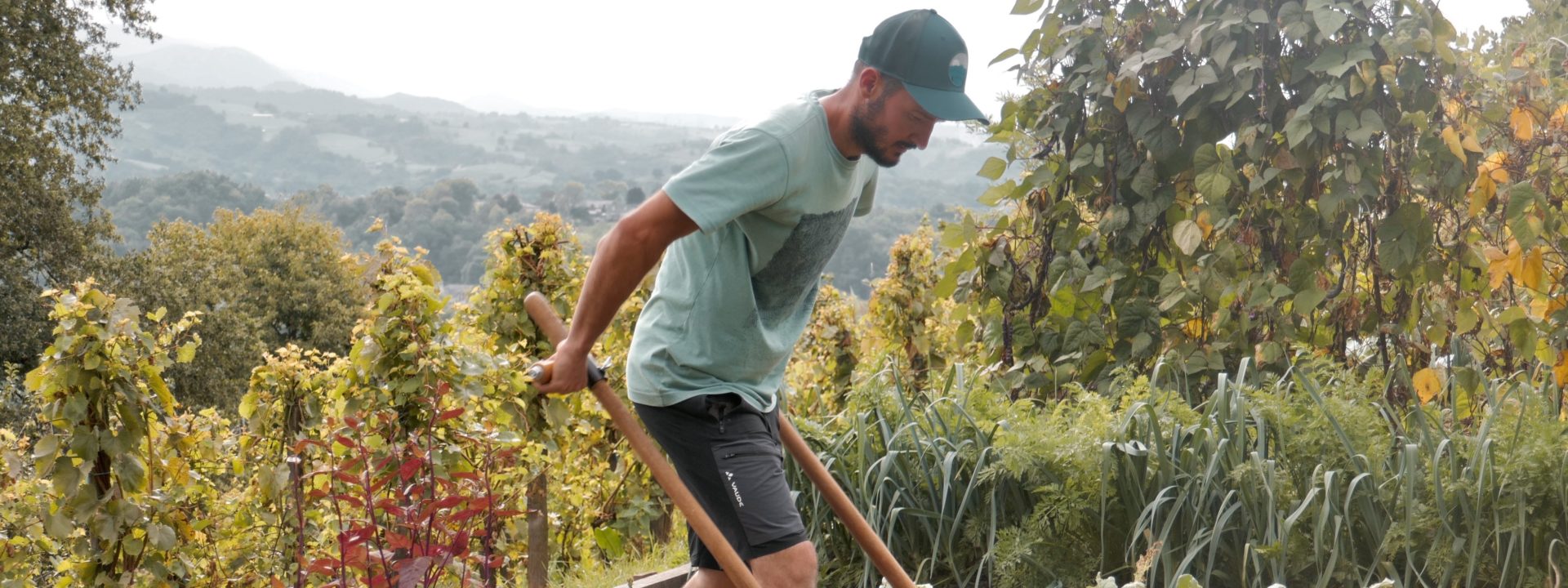
Why our diet can also contribute to climate protection
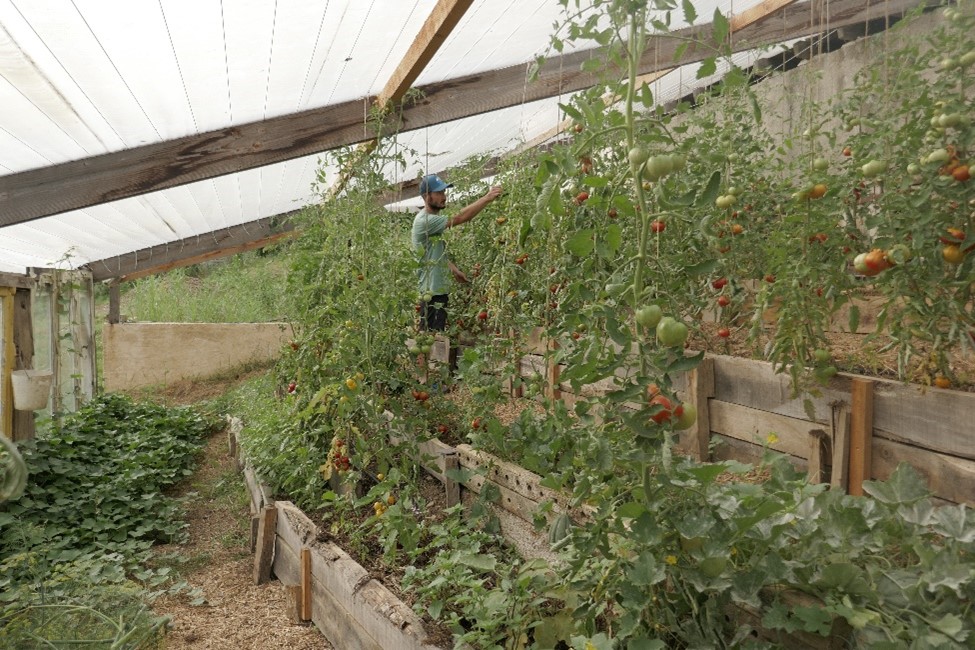
Wiliam Cochet is a freerider and can usually be found somewhere deep in the winter snow. Come summer when he’s can’t powder down snowy slopes, he spends a lot of time on his small farm in France. For many years now, the VAUDE athlete has been committed to climate change activism and environmental protection; he founded the Bioskieur group which is a platform for skiers focusing on respecting nature. For Wiliam Cochet, #EverydayClimateday is a lived reality throughout the year.
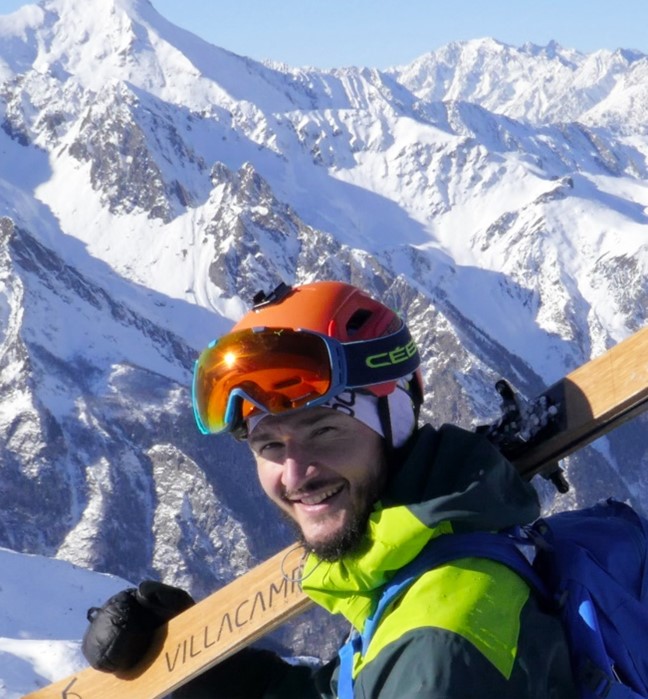
“It is important to do as much as possible in our daily lives to protect the planet. In everything I do, I try to keep my ecological footprint as small as possible,” says the 36-year-old. He does this while skiing, but also in other areas of his life. It’s probably no surprise that the Frenchman has taken an in-depth look at the importance of food on our climate footprint. “Today, about 30 percent of global CO2 emissions are due to food. Our current food production methods are a disaster in many respects,” says the 36-year-old. Whether it’s chemical fertilizers, transportation or the use of machinery in agriculture, these are factors that contribute to climate change and – in Cochet’s opinion – also reduce biodiversity, impoverish the planet and increase social problems.
This is why he began growing his own fruit and vegetables on his farm. “It’s a wonderful way for me to slow down my life and become really close to nature,” Wiliam says. And it’s the logical conclusion of his efforts to make his life as climate-friendly as possible.
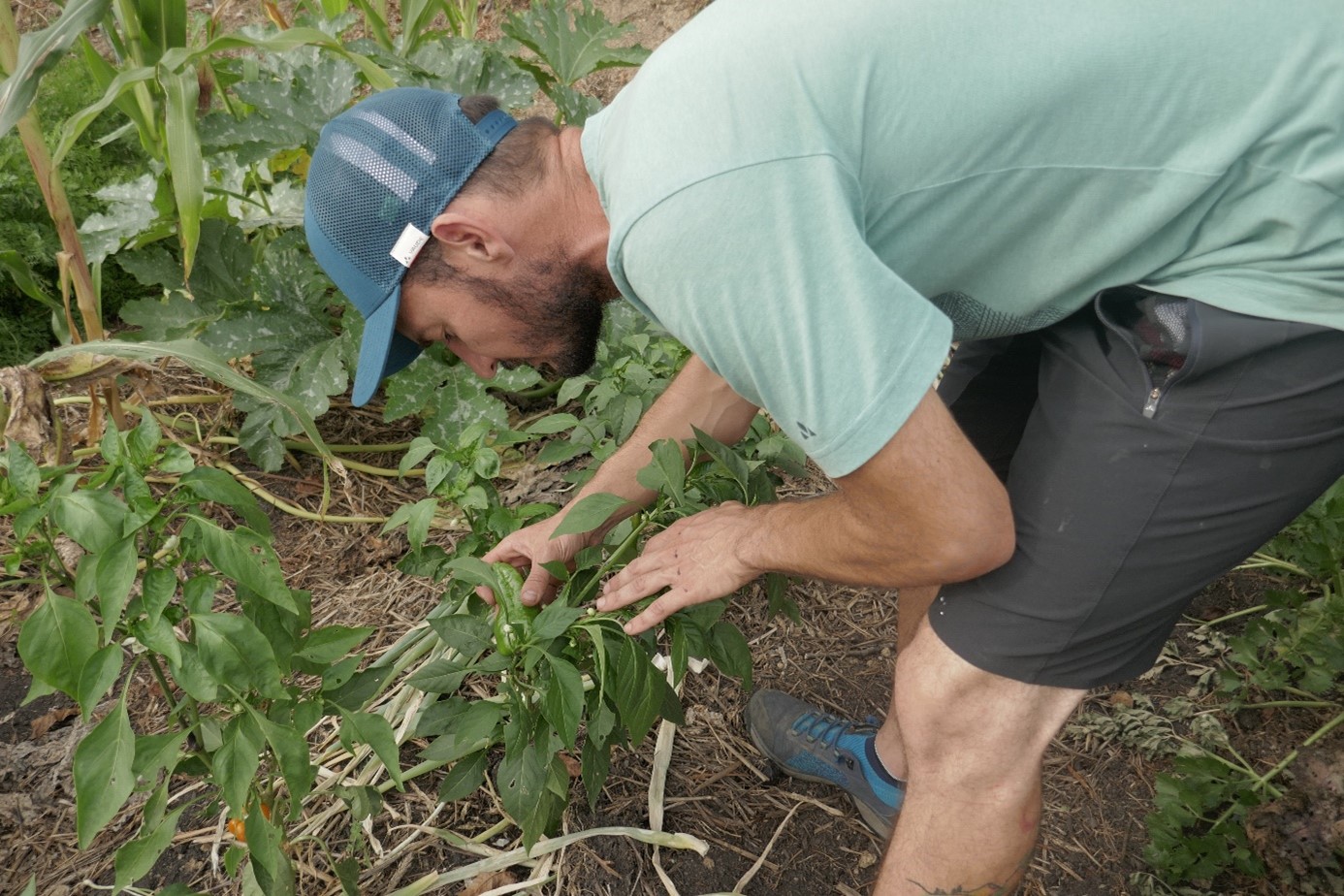
He grows tomatoes, zucchini, carrots, beans and berries in his garden of about one hectare. “In fact, just about everything you can grow,” adds Cochet. In addition, he has 20 chickens that provide him with eggs. The most important thing for him is that the food he eats is locally grown – and not trucked across Europe, for example. “For me, food is sustainably produced if I can grow it myself or if it’s locally sourced, such as from organic farmers I know personally. What matters to me is the ecological footprint of the products and how they are made. And that’s why I don’t need bananas or chocolate to be happy these days.”
Providing his friends and family with the food he grows himself has become a way of life for Wiliam Cochet. What can’t be eaten right away is canned. “It’s pretty easy to can vegetables like tomatoes or ratatouille. Other things can be frozen and I prefer to dry beans and fruits,” Cochet is pleased to say. In the summer, he sells some of his harvest to friends or neighbors. And working on his small farm makes him feel good every day. “We as humans belong to the natural world. And we can’t live without nature. My garden shows me that every day.”
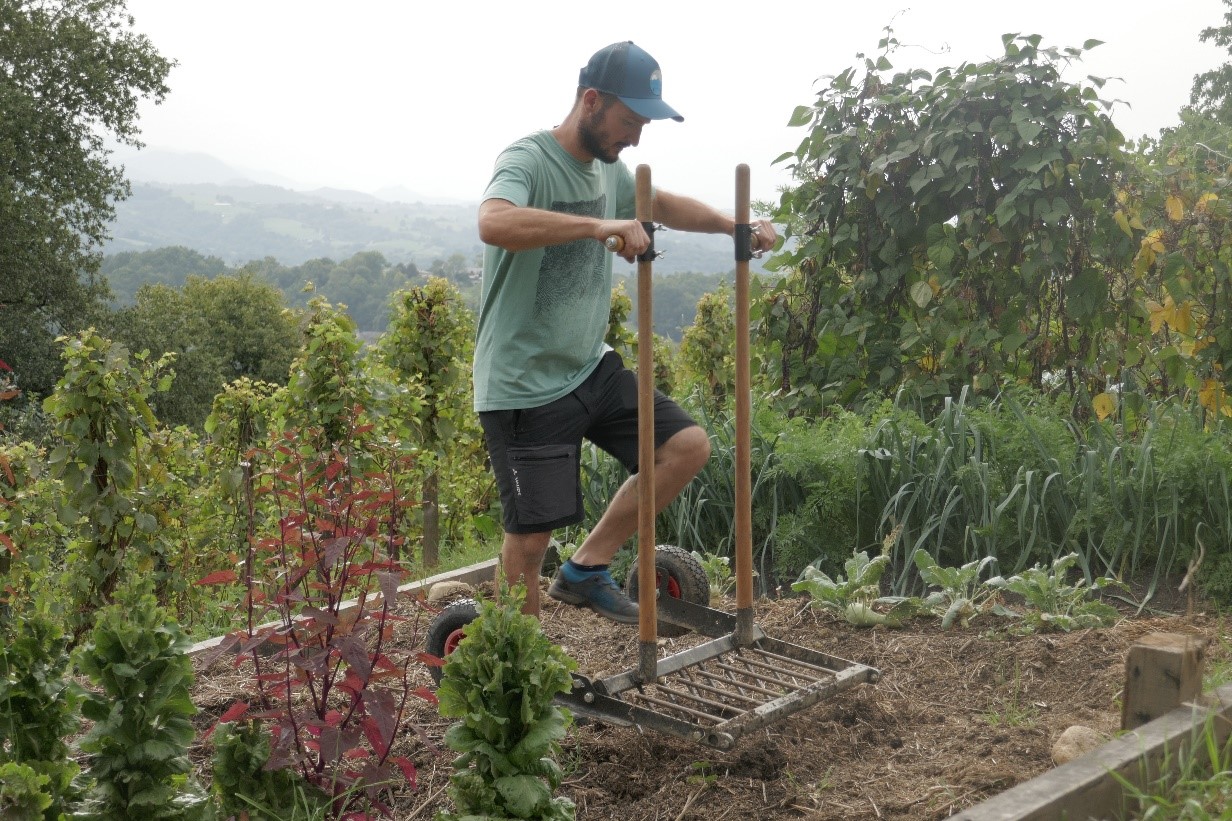
What matters most to Wiliam Cochet is that the products he eats are grown regionally. He is not a vegan; about once a week he also eats meat that he gets from farms in his neighborhood. That makes sense to him, because he knows exactly how the animals are kept and treated.
During the summer months, Wiliam Cochet also runs his own small restaurant. Before the 36-year-old VAUDE athlete became a professional freerider, he worked as a cook. Now his livelihood comes from sponsoring for his skiing skills and from the proceeds of his farm and restaurant. “This lifestyle makes it possible for me to be even more mindful of nature, to understand it and be close to it,” says Wiliam. For him, #EverydayClimateday has become a way of life, and not just when it comes to mountain sports.
At VAUDE, we are also focusing on regional cuisine. Chef Rainer Seibold has always sourced regional, organic and fair ingredients. Since the beginning of July 2021, our organic canteen has been completely vegetarian or vegan. “Since 2019, I’ve been vegan myself. I want to share my passion and am convinced that we can gain so much more with the new kitchen,” says the 33-year-old. Specifically, this means “more freshness, more quality, more food diversity, more climate and environmental protection, more social justice, more VAUDE Spirit!”
Come visit us in our canteen and have a taste! (When the pandemic allows it again😊
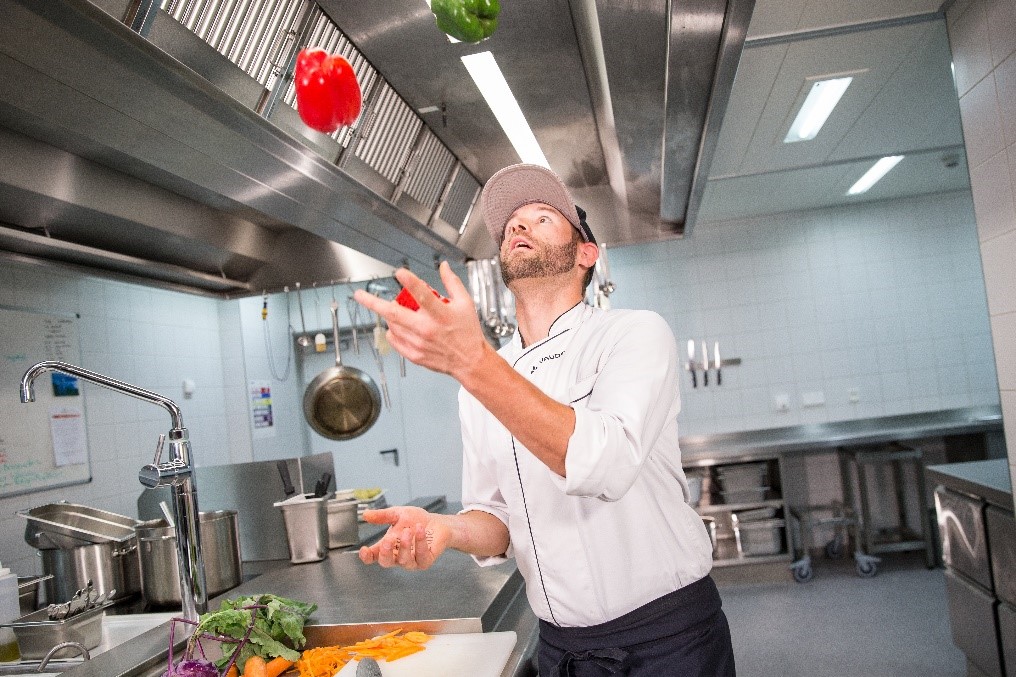
And here are some tips to provide some inspiration:
- If you don’t eat meat or other animal products, you can reduce your emission footprint by about 50 percent, so try to eat vegan or vegetarian regional food as often as possible.
- Organic farming produces up to 20 percent less CO2 than conventional farming. That’s why it’s best to choose regional organic food.
- Refrigeration and greenhouse gases create additional emissions. Therefore, buy regional food that is in season.
- Packaging can also be responsible for unnecessary CO2 emissions. Choose fresh regional food with little or no packaging and use reusable containers instead of disposable products.
- Transporting regional food doesn’t just produce CO2 for retailers and producers, but for consumers as well. Whenever possible, do your shopping on foot, by bike or by bus and train instead of by car.
- An estimated one third of all food ends up in the garbage instead of on the plate. The wasted emissions – from harvesting to the food’s preparation – are very large. Therefore, try not to throw away any food.
Source: Federal Ministry for the Environment


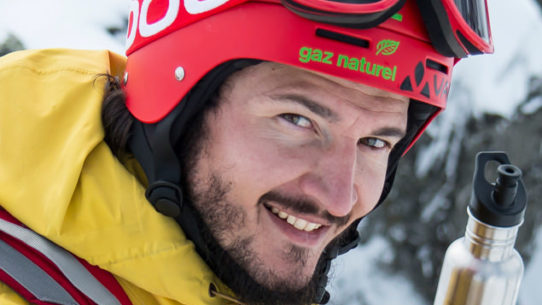
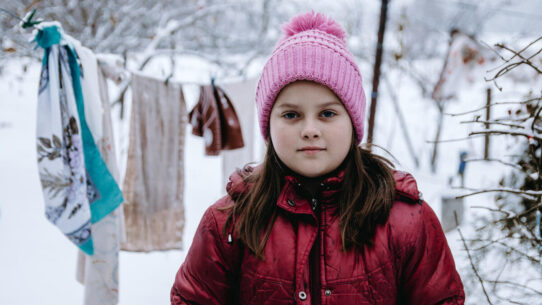
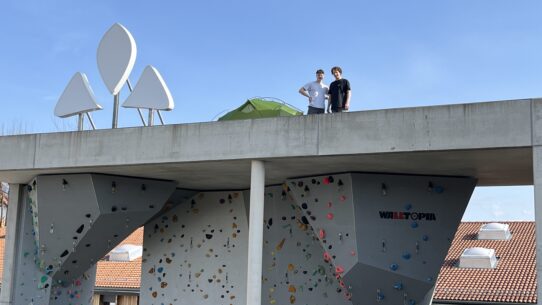
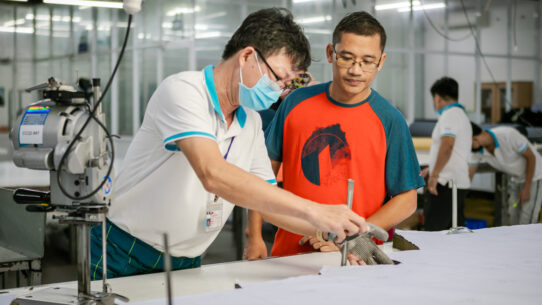
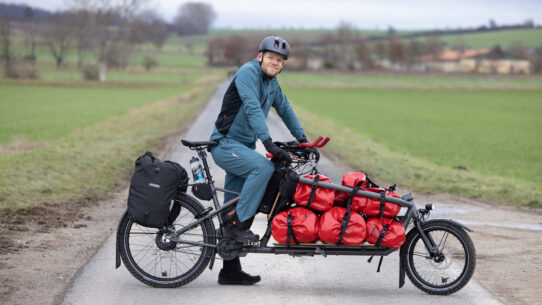
Comments